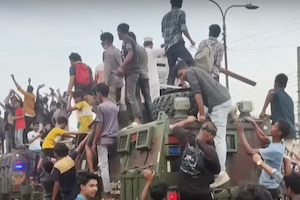174 killed in Bangladesh protests against job quota privileges; Supreme Court revokes the regulation

On the 21st, the Supreme Court of Bangladesh revoked the regulation reserving job quotas for privileged groups, hoping to quell the anti-government protests and riots triggered by the job quota privileges. The protests have resulted in 174 deaths. The student leaders of the protests called for a pause in the demonstrations, which had been ongoing for a week. At the students' request, the Bangladeshi government lifted the curfew and restored internet access that had been cut off.
The primary cause of the protests was the government's policy, in place since 1971, of reserving 30% of government jobs for the families of those who participated in the 1971 independence war. This privilege was abolished by the Hasina government in 2018, but last month a lower court unexpectedly reinstated the job quota system, sparking large-scale student protests. The authorities responded to the unrest with suppression measures, including curfews, a nationwide internet and social media shutdown, a suspension of television news broadcasts, and blocking access to local newspaper websites.
According to foreign reports, the job quota system in Bangladesh has long been controversial. On the 21st, the Supreme Court overturned the lower court's decision, mandating that 93% of government jobs be available to the general public, reducing the quota for independence war families to 5%, and reserving 2% for disadvantaged groups and persons with disabilities. This decision aims to quell the protests. However, the protesting students are not satisfied and have stated that they will not stop their demonstrations until the quota system for the descendants of independence war veterans is completely abolished.
- 114 reads
Human Rights
Fostering a More Humane World: The 28th Eurasian Economic Summi

Conscience, Hope, and Action: Keys to Global Peace and Sustainability

Ringing FOWPAL’s Peace Bell for the World:Nobel Peace Prize Laureates’ Visions and Actions

Protecting the World’s Cultural Diversity for a Sustainable Future

Puppet Show I International Friendship Day 2020

